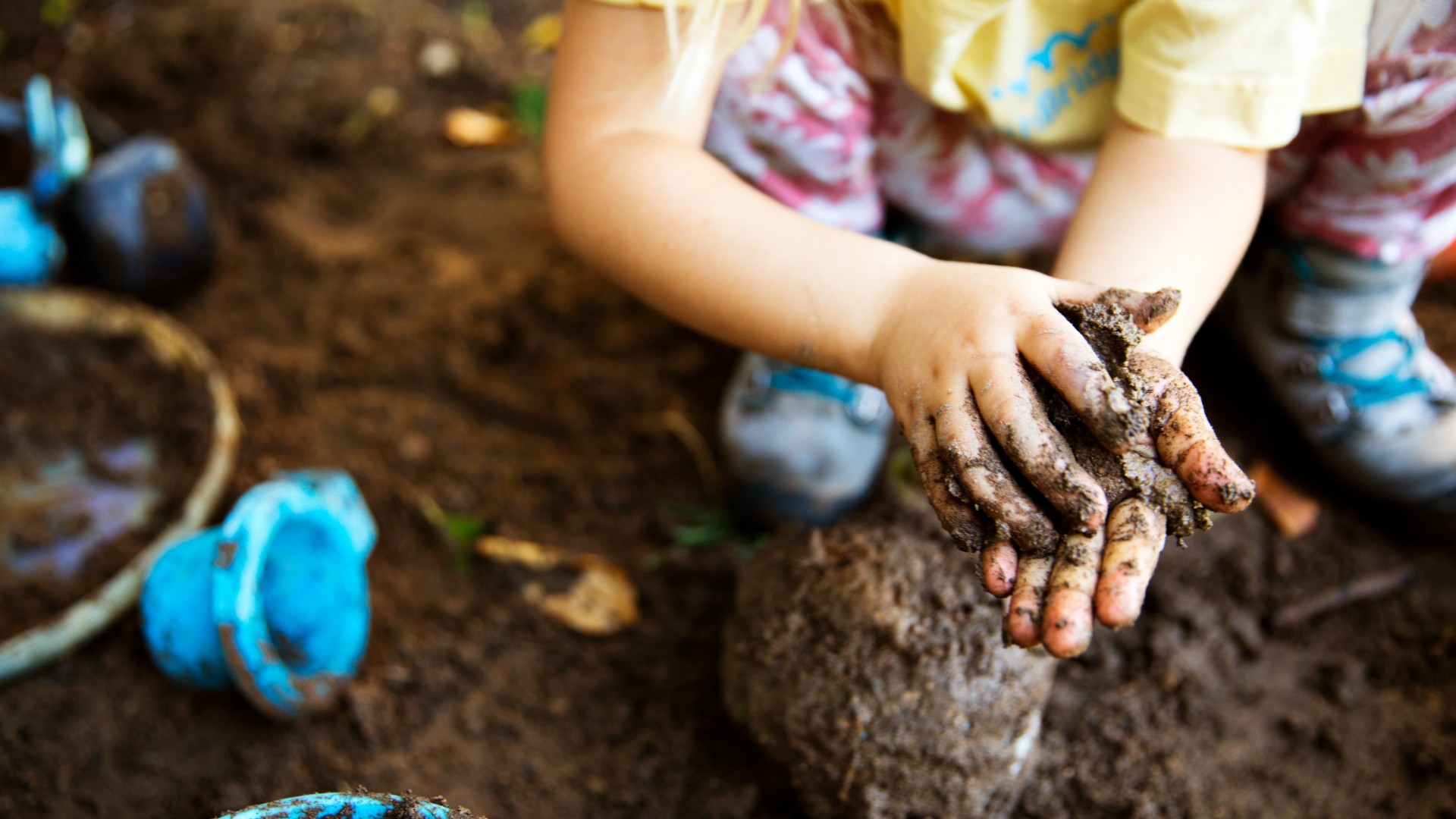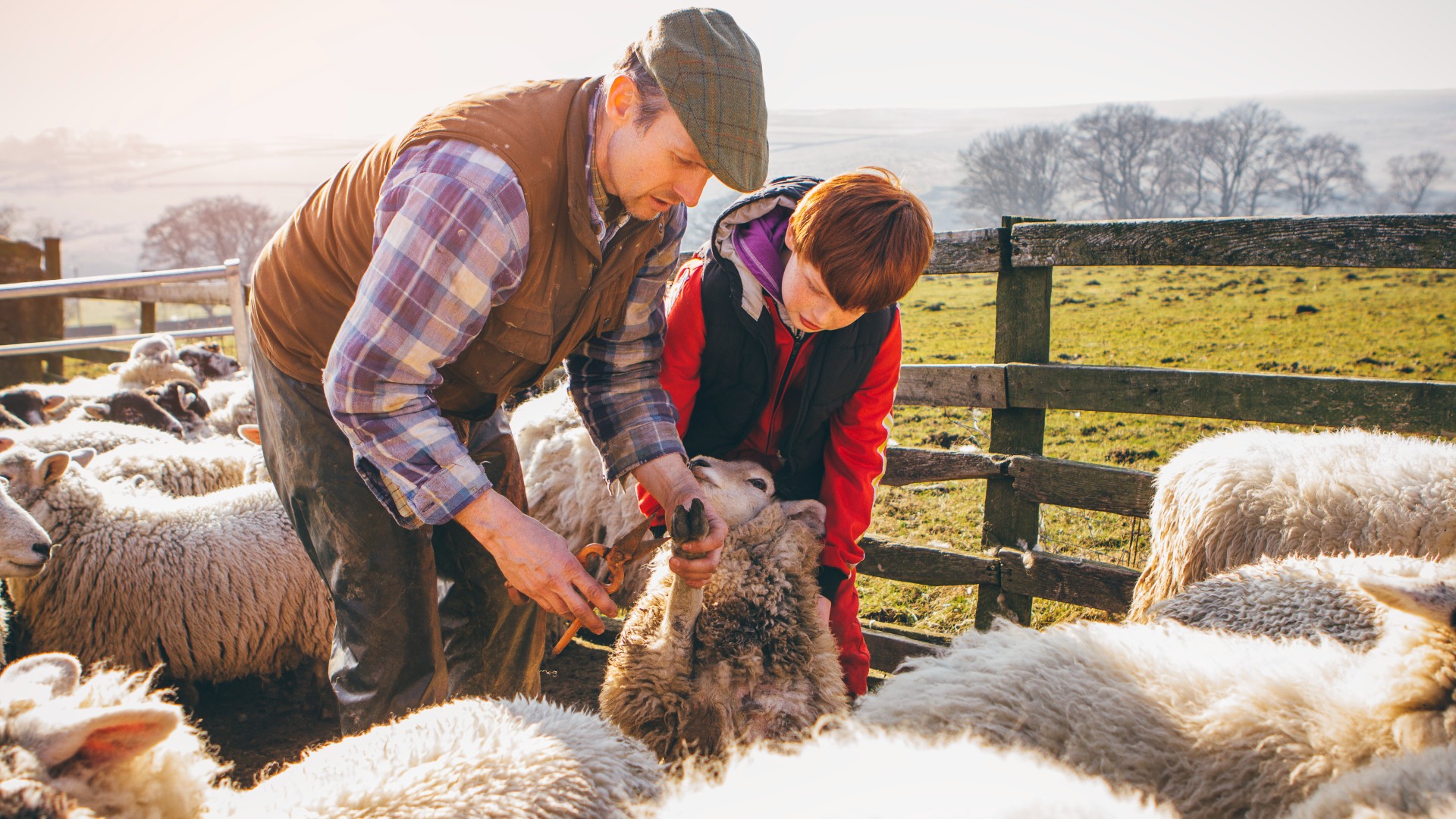Is playing in the dirt good for kids' immune systems?
Experts explain why it's healthy to let your children occasionally play in the dirt — and it may not be for the reasons you assume.

Get the world’s most fascinating discoveries delivered straight to your inbox.
You are now subscribed
Your newsletter sign-up was successful
Want to add more newsletters?

Delivered Daily
Daily Newsletter
Sign up for the latest discoveries, groundbreaking research and fascinating breakthroughs that impact you and the wider world direct to your inbox.

Once a week
Life's Little Mysteries
Feed your curiosity with an exclusive mystery every week, solved with science and delivered direct to your inbox before it's seen anywhere else.

Once a week
How It Works
Sign up to our free science & technology newsletter for your weekly fix of fascinating articles, quick quizzes, amazing images, and more

Delivered daily
Space.com Newsletter
Breaking space news, the latest updates on rocket launches, skywatching events and more!

Once a month
Watch This Space
Sign up to our monthly entertainment newsletter to keep up with all our coverage of the latest sci-fi and space movies, tv shows, games and books.

Once a week
Night Sky This Week
Discover this week's must-see night sky events, moon phases, and stunning astrophotos. Sign up for our skywatching newsletter and explore the universe with us!
Join the club
Get full access to premium articles, exclusive features and a growing list of member rewards.
As a child, you may have been told that playing outside in the dirt is good for you because it strengthens your immune system. But is there any evidence to back this claim?
In short, yes — several studies suggest that early exposure to dirt may reduce kids' risk of developing allergies and autoimmune conditions. In other words, it may guard against conditions in which the immune system unhelpfully reacts to allergens or to the body's tissues.
As a child's immune system develops in the early years of life, the army of protective cells within the body have to learn how to distinguish between the body's own cells and foreign substances that are either harmless or disease-causing, such as bacteria and viruses. It must learn to spot the disease-causing pathogens in order to attack them.
Related: What do some allergies last a lifetime? Newly described immune cells to blame
It turns out that the molecular signals that drive the expansion of this regulatory arm of the immune system mainly come from microbes in the gut, Graham Rook, a professor emeritus of medical microbiology at University College London, told Live Science. This collection of microbes is called the "gut microbiome" and is essential to our health. For instance, some of these microbes help produce vitamins that we need to live, and they help us digest our food.
The first year of life is crucial to the microbiome's development. Babies receive bacteria as they pass through the birth canal, if they're born vaginally, and from milk if they're breastfed. As children grow, they are steadily exposed to microbes from a wide array of sources.
A theory called the "old-friends hypothesis" suggests that, the greater the range of microbes we're exposed to in early childhood, the more diverse our microbiomes will be and thus the better our immune systems will recognize friend from foe. The term "old friends" refers to helpful, or "commensal," microbes that live on and in the body without harming a person's health.
Get the world’s most fascinating discoveries delivered straight to your inbox.
This theory, proposed by Rook in 2003, is similar to the more widely known hygiene hypothesis, which suggests that a lack of early exposure to germs makes people more prone to immune conditions. Multiple studies, for instance, have demonstrated a link between growing up on a farm or in a household with pets and having a lower likelihood of children developing allergies, compared with kids in urban or pet-less environments.
However, the old friends hypothesis stresses the importance of being exposed to commensal microbes in early life, as opposed to infectious pathogens. This idea is backed by research: several studies in Europe suggest early exposure to germs does not guard against the development of allergies. Another critique of the hygiene hypothesis is that it downplays the importance of good hygiene to preventing disease, pushing the idea we've become "too clean," Rook and colleagues argued in a 2016 review.
The old friends hypothesis, on the other hand, could help explain why antibiotic overuse in early life, which can wipe out much of the gut microbiome, and cesarean deliveries, which don't expose newborns to vaginal bacteria, have been tied to an increased risk of allergies.
A trial in Finland looked at whether city kids' immune systems could be bolstered with grass and soil that had been taken from the forest floor. They found that, within a month, children who played in the dirt had a more diverse collection of harmless bacteria on their skin and more immune-regulatory cells and signaling molecules in their blood than those who played on gravel playgrounds. This hints that exposure to bacteria within dirt could help the immune system mature, theoretically reducing the chances of it becoming overactive.
Similarly, a Swedish study published in 2024 found that children who either grew up on dairy farms or had pets had lower rates of allergies than those who didn't. They also had more harmless bacteria in their guts, so the study authors concluded that the two phenomena may be linked.
While the microbiome is important, there are many other factors that affect someone's risk of developing allergies, including their genetics, Dr. Robert Wood, a professor of pediatrics at Johns Hopkins Medicine in Baltimore, told Live Science. As a general message, though, children should be encouraged to go outside and play in the dirt, he said.
However, scientists' current understanding of risk factors for immune conditions can't always be translated into practical advice. For instance, if you have a dog, you may have a somewhat lower chance of developing allergies than a pet-less person — but you can't tell somebody to get a dog as a guaranteed way to prevent allergies, Wood said.
Dirt in heavily polluted areas can also be unhealthy for kids, as it could contain harmful contaminants, he noted. This clearly wouldn't be the sort of dirt that you'd want your child to be exposed to. And because dirt can contain potentially harmful chemicals, such as lead, as well as parasites, care should be taken to stop children from inhaling or eating it.
Editor's note: This article was updated on Nov. 28, 2024 to include information about the Swedish study. The article was originally published on April 2, 2024.
Ever wonder why some people build muscle more easily than others or why freckles come out in the sun? Send us your questions about how the human body works to community@livescience.com with the subject line "Health Desk Q," and you may see your question answered on the website!

Emily is a health news writer based in London, United Kingdom. She holds a bachelor's degree in biology from Durham University and a master's degree in clinical and therapeutic neuroscience from Oxford University. She has worked in science communication, medical writing and as a local news reporter while undertaking NCTJ journalism training with News Associates. In 2018, she was named one of MHP Communications' 30 journalists to watch under 30.
 Live Science Plus
Live Science Plus











